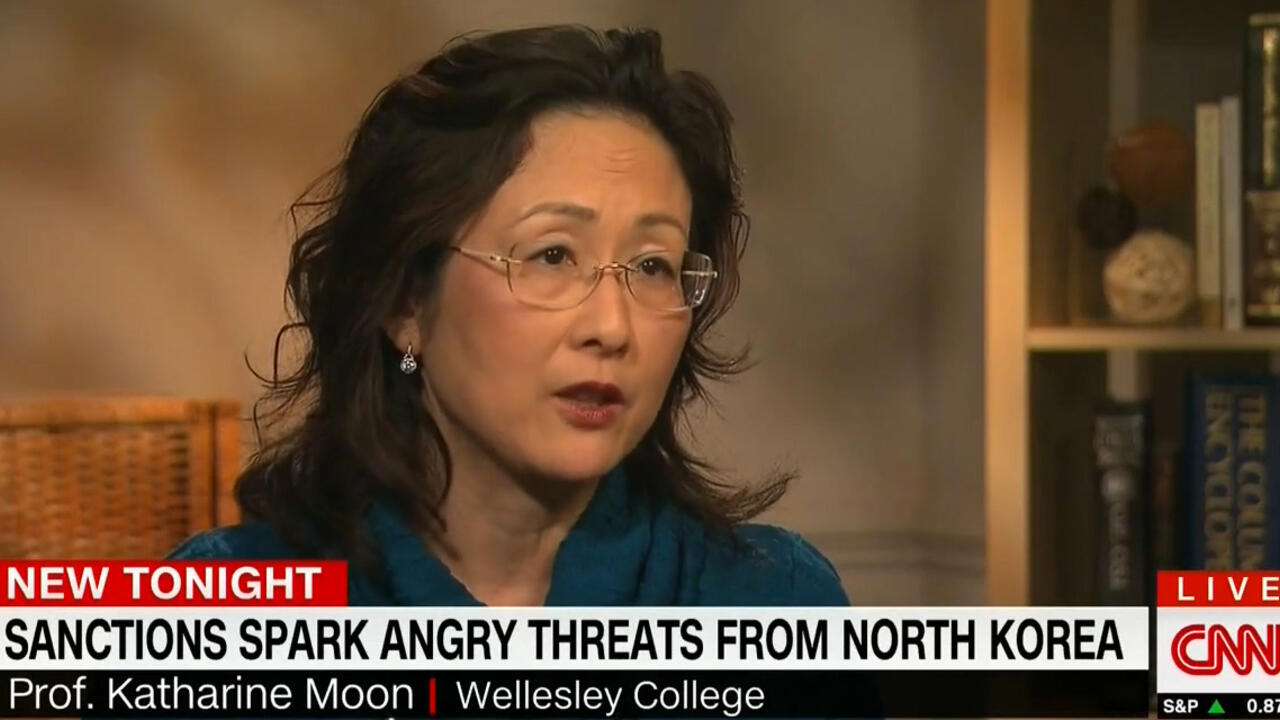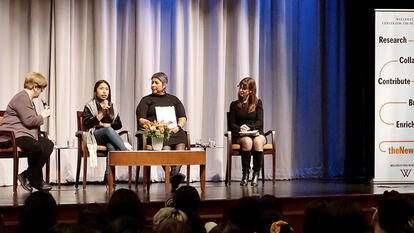From CNN to the BBC and beyond, Professor Katharine H.S. Moon’s Expertise on North and South Korea Has an International Reach

In a time of increasing uncertainty regarding Northeast Asian international relations, Katharine H.S. Moon, Edith Stix Wasserman Professor of Asian Studies and professor of political science at Wellesley, has been helping members of the global media explain the complexity of the region to audiences around the globe. Moon recently appeared on CNN’s The Situation Room with Wolf Blitzer to discuss North Korean aggression against the United Nations. She has also lent her expertise to national and international broadcast media including the BBC World Service, China’s CCTV, Canada’s CBC Radio, France 24, and WBUR’s On Point with Tom Ashbrook. Magazines, websites, and journals have also asked for her commentary, including The Atlantic, The Economist, Slate, and Quartz. Moon has been interviewed by newspapers as geographically diverse as the New York Times, Korea Times, Chile’s El Mercurio, and Greece’s To Vima. What’s more, she has written two commissioned articles for Foreign Affairs, most recently “South Korea’s Shamanic Panic.”
In recent weeks, Moon has been sought after in particular to discuss tensions between North and South Korea and between the United States and North Korea, as well as the recent political scandal involving the president of South Korea. She has also commented on the effects of the recent U.S. presidential election on East Asia, nuclear threats from North Korea, and South Korean sociopolitical issues. For Quartz, she provided a gender analysis for an article on the “epic battle between feminism and deep-seated misogyny [that] is under way in South Korea.”
On CNN, Moon discussed how sanctions designed to deter North Korea’s nuclear program will likely play out. Moon said North Korea’s Kim Jong-un “will squeeze the North Korean people if he has to in order to make up for whatever personal losses are caused by the sanctions.” (She had previously appeared on The Situation Room in late April, regarding North Korea’s detainment of Westerners.)
With the BBC World Service, Moon spoke about what will happen after the South Korean president’s impeachment vote and reflected on the lessons learned from the scandal, as well as the “entrenched” political processes and social customs that could prevent any real change.
Following the U.S. presidential election, she talked with Slate, among others, about president-elect Trump’s strategy toward East Asia. She remarked that “Trump’s rhetoric has created extreme nervousness in South Korea as well as in Japan,” as both countries fear the withdrawal of U.S. troops or a weakening of alliance commitments in the region.
In an email interview, Moon criticized the media tendency to focus on Pyongyang and the Kim regime in ways that “limit our understanding of the country and society.” She explained, “The media zooms in too much on North Korea's leader Kim Jong-un as if he alone decides the daily actions of the people. Even in a dictatorship, common people create alternative meanings for their lives and are resourceful in obtaining outside information and daily necessities.”
When asked about what 2017 may hold for the region, Moon said that “all the Northeast Asian countries will be ‘testing’ one another in public and private ways. North and South Korea want to figure out what the substance and form of a Trump administration will be. What will constitute their interests in East Asia? Primarily economic? Or will geopolitical concerns weigh in? How will the new administration prioritize different parts of the world?”
Moon also discussed the advantages of teaching in her field of study. “The magical part of studying the Koreas and East Asia is how much synergy there is between the real world of foreign policy and international politics and the classroom,” she explained. “Teaching World Politics, for example, or Nation-building and Nationalisms in East Asia enables me to bring the immediacy of domestic political developments in East Asia, the regional military tensions, nationalism and identity politics, and other issues directly into the classroom.”
Moon is also a nonresident senior fellow at the Brookings Institution Center for East Asia Policy Studies.
Christine Roberts '19 contributed to this story.



